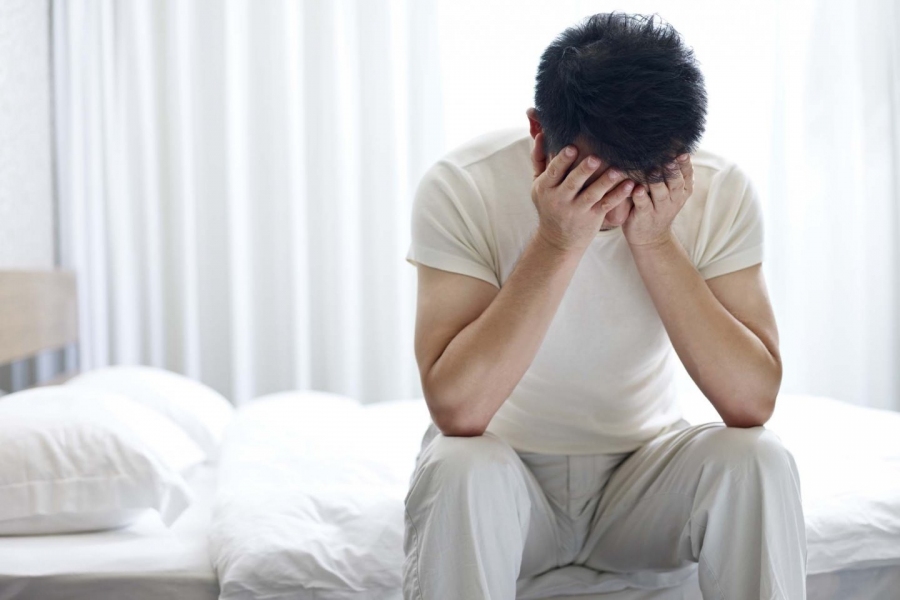7399Views 0Comments

What Erectile Dysfunction Do We Know?
You have been looking forward to your partner all week, imagining all the positions you will try, and you can’t wait for the weekend. But the working week is there and with it your desire. Erection disorders have been reported in up to 90% of men under the age of 40. And with increasing age, so do the problems. That’s a high number! So let’s break down this problem from A to Z.
Types of erectile dysfunction
Erectile dysfunction is not just one. Sexologists distinguish three basic types of erectile dysfunction:
- weak erection,
- short erection
- And no erection.
Weak erection
You feel arousal with this type of disorder, but your organ is still very low. You can get an erection, but love can’t happen anyway. The organ is not erect enough to penetrate the partner’s vagina. Weak erections can occur, for example, as a result of excessive stress, anxiety, depression, or overwork.
Short erection
A short erection is considered to be a very short and weak erection. You are very excited for a while, but in a moment, the physical tension subsides, and you are no longer in the mood for love. This disorder is the least problematic, as you just have to wait a while and then try again. Usually, the second time love succeeds. A short erection is considered a condition that lasts for a maximum of a minute and does not end with ejaculation.
Suppose you have a strong enough erection and at the same time ejaculate within a few seconds. In that case, this is not a short erection but a premature ejaculation, and that is something completely different. The causes of a quick erection can range from mental problems such as stress and anxiety to physical issues such as cardiovascular disease.
No erection
The most unpleasant type of disorder is no erection or erectile dysfunction. In short, nothing happens. No matter how hard you try, erections nowhere. This comes in the form of various dietary supplements or erection drugs, which you try to solve this problem. Erectile dysfunction can affect both older men and young people. He usually points to some serious health problems, such as diabetes, obesity, cardiovascular disease, cancer, enlarged prostate.
But each person is unique. So everyone can have a different problem. Someone may have a problem with an erection that is too short and weak at the same time. In any case, this needs to be addressed. Whether it’s a short erection or even erectile dysfunction, inaction won’t solve your problem.
What is the difference separating impotence and erectile dysfunction?
We will now explain the difference between impotence and erectile dysfunction. Erectile Dysfunction and its Treatment, he explains the term Erectile Dysfunction as a condition in which a man cannot achieve a sufficient and required time-lasting erection.
In this case, we are talking about a common and recurring problem. In the past, the term impotence has also been used for this problem, but this is not the correct term. Impotence means a problem with infertility, inability to ejaculate, and inability to reach climax. Therefore, both terms belong to the issue of erectile dysfunction, but both indicate a slightly different problem.
Is erectile dysfunction related to the prostate?
And are any of them related to the prostate? Does the prostate affect erection at all? This is also a common question. Some experts say yes, others certainly not. “If we look at this question from a purely anatomical point of view, we will see a certain connection here. Everything revolves around the muscles of the pelvic floor. If they are flaccid, both urinary incontinence and erectile dysfunction can occur. But that doesn’t mean the prostate is to blame.
All you have to do is train your pelvic floor muscles, and both problems should disappear, Nutrition Counselor, who also worked as a personal trainer at Holmes Place (Prague) and Virgin Active (Edinburgh).
According to many studies, however, the prostate has a direct and huge effect on erection. Experts also confirmed this. Researchers in a study studied this relationship between a man’s physical life and his prostate’s health. During the research, they monitored 2,115 men aged 40 to 79 years. This study showed that each of the areas of physical function, whether it was arousal, erectile function, the power of ejaculation, or even overall physical satisfaction, was indirectly related to the lower urinary tract’s health, the prostate.
Similar results were obtained from a study called “Prostatic Disease and erectile Dysfunction “, or a study from 2016, for example. The prostate, therefore, has an undeniable effect on the quality of your erection.
Should we visit a sexologist or urologist?
But what if erection problems persist? What if your problems aren’t just random, but stick out your claws every time you try to have love? If you have erectile dysfunction for several weeks, be sure not to wait for anything and see a specialist. A visit to a sexologist is ideal. But your GP or urologist will also give you a helping hand. Just don’t be afraid and go out with your problems. That’s the only way you can find help, that’s the only way you can find a solution.
Erectile dysfunction currently affects approximately 152 million men worldwide. However, you do not have to belong to this group. It doesn’t have to apply to you.
Natural treatment for erectile dysfunction
If you are concerned about visiting a doctor, you can try natural remedy or Fildena 100. You can reach for products that have a positive effect on the quality of physical intercourse.
A great choice is Fildena 150 or vigora 100. This purely sildenafil product contains an effective amount of natural sildenafil that will strengthen your erection, increase libido, and improve your overall love life. All you have to do is get one pill about an hour before love, and suddenly you give again an exercise that you have never dreamed of for a long time.
A useful herb for strengthening erections
For example, the anchor, which is contained in erectile tablets, is considered an effective aphrodisiac and treats many other human ailments.


